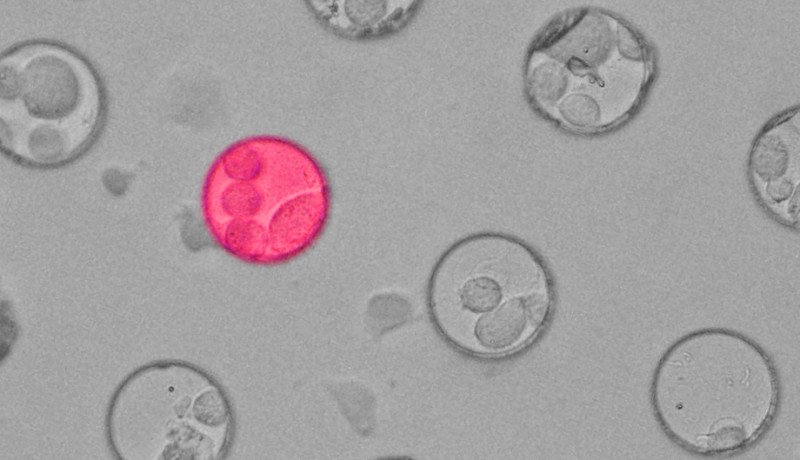Scientists Develop Operating System To Program Living Cell
November 08, 2011
on
on

Scientists of the University of Nottingham are developing an operating system to program a biological cell making it perform any function without altering its hardware.
Professor Natalio Krasnogor of the University's School of Computer Science is active in the emerging field of synthetic biology. Synthetic biology is the design and construction of new biological systems not found in nature. It is a collaborative field where disciplines such as molecular biology, bioengineering and computer science cross over.
Krasnogor explains that synthetic biology views a living cell as an information processing machine. A complex system composed of interrelated subsystems which communicate with each other. When the cell receives information from an external stimulus, it processes this information and generates a certain output. For instance, it starts creating more cells.
From understanding a cell as a machine it follows that a cell can equally be build from different parts like a machine. And these parts can be considered as hardware that can be operated by software.
Krasnogor who leads the Towards a Biological Cell Operating System (AUdACiOuS) project which received a £1 million in funding from the Engineering and Physical Sciences Research Council (EPSRC), said: "We are looking at creating a cell's equivalent to a computer operating system in such a way that a given group of cells could be seamlessly re-programmed to perform any function without needing to modifying its hardware.
“Currently, each time we need a cell that will perform a certain new function we have to recreate it from scratch which is a long and laborious process. Most people think all we have to do to modify behavior is to modify a cell's DNA but it's not as simple as that -- we usually find we get the wrong behavior and then we are back to square one. If we succeed with this AUdACiOuS project, in five years time, we will be programming bacterial cells in the computer and compiling and storing its program into these new cells so they can readily execute them.
"We are talking about a highly ambitious goal leading to a fundamental breakthrough that will, -- ultimately, allow us to rapidly prototype, implement and deploy living entities that are completely new and do not appear in nature, adapting them so they perform new useful functions."
Source: Nottingham.ac.uk
Photo: Carbondesign.com
Professor Natalio Krasnogor of the University's School of Computer Science is active in the emerging field of synthetic biology. Synthetic biology is the design and construction of new biological systems not found in nature. It is a collaborative field where disciplines such as molecular biology, bioengineering and computer science cross over.
Krasnogor explains that synthetic biology views a living cell as an information processing machine. A complex system composed of interrelated subsystems which communicate with each other. When the cell receives information from an external stimulus, it processes this information and generates a certain output. For instance, it starts creating more cells.
From understanding a cell as a machine it follows that a cell can equally be build from different parts like a machine. And these parts can be considered as hardware that can be operated by software.
Krasnogor who leads the Towards a Biological Cell Operating System (AUdACiOuS) project which received a £1 million in funding from the Engineering and Physical Sciences Research Council (EPSRC), said: "We are looking at creating a cell's equivalent to a computer operating system in such a way that a given group of cells could be seamlessly re-programmed to perform any function without needing to modifying its hardware.
“Currently, each time we need a cell that will perform a certain new function we have to recreate it from scratch which is a long and laborious process. Most people think all we have to do to modify behavior is to modify a cell's DNA but it's not as simple as that -- we usually find we get the wrong behavior and then we are back to square one. If we succeed with this AUdACiOuS project, in five years time, we will be programming bacterial cells in the computer and compiling and storing its program into these new cells so they can readily execute them.
"We are talking about a highly ambitious goal leading to a fundamental breakthrough that will, -- ultimately, allow us to rapidly prototype, implement and deploy living entities that are completely new and do not appear in nature, adapting them so they perform new useful functions."
Source: Nottingham.ac.uk
Photo: Carbondesign.com
Read full article
Hide full article


Discussion (0 comments)